12 Stocks You Should Never Sell
Hopping in and out of stocks tends to do more harm than good to your portfolio.


Profit and prosper with the best of Kiplinger's advice on investing, taxes, retirement, personal finance and much more. Delivered daily. Enter your email in the box and click Sign Me Up.
You are now subscribed
Your newsletter sign-up was successful
Want to add more newsletters?

Delivered daily
Kiplinger Today
Profit and prosper with the best of Kiplinger's advice on investing, taxes, retirement, personal finance and much more delivered daily. Smart money moves start here.

Sent five days a week
Kiplinger A Step Ahead
Get practical help to make better financial decisions in your everyday life, from spending to savings on top deals.

Delivered daily
Kiplinger Closing Bell
Get today's biggest financial and investing headlines delivered to your inbox every day the U.S. stock market is open.

Sent twice a week
Kiplinger Adviser Intel
Financial pros across the country share best practices and fresh tactics to preserve and grow your wealth.

Delivered weekly
Kiplinger Tax Tips
Trim your federal and state tax bills with practical tax-planning and tax-cutting strategies.

Sent twice a week
Kiplinger Retirement Tips
Your twice-a-week guide to planning and enjoying a financially secure and richly rewarding retirement

Sent bimonthly.
Kiplinger Adviser Angle
Insights for advisers, wealth managers and other financial professionals.

Sent twice a week
Kiplinger Investing Weekly
Your twice-a-week roundup of promising stocks, funds, companies and industries you should consider, ones you should avoid, and why.

Sent weekly for six weeks
Kiplinger Invest for Retirement
Your step-by-step six-part series on how to invest for retirement, from devising a successful strategy to exactly which investments to choose.
Hopping in and out of stocks tends to do more harm than good to your portfolio. Fortunately, most of the time, investors are content to sit back and let time do the heavy lifting.
Every now and then, however, an uninterrupted market-wide rally (such as the one we saw in 2017) followed by a couple of major corrections (such as the ones we’ve seen in 2018) inspires a more active approach. Buying every dip last year was a bulletproof strategy; steering clear of this year’s big dips would’ve left most investors far better off.
But broadly speaking, investors shouldn’t embrace that short-term mindset. Buy-and-hold is a time-tested strategy that helps investors avoid trying to time the market (which even experts can’t reliably do) and making poor emotional decisions.
With that as a backdrop, here are a dozen stocks to never sell. Many buy-and-holders are looking to reset their portfolios as the new year begins. If you hold any of the stocks, don’t stop … and if you’re looking to buy, be ready to commit. Each company has plenty to success that their history of success should continue for years to come. And each operates in an industry that won’t go away anytime soon.
Data is as of Dec. 10, 2018. Dividend yields are calculated by annualizing the most recent quarterly payout and dividing by the share price.

3M
- Market value: $116.8 billion
- Dividend yield: 2.7%
- 3M (MMM, $198.32) shareholders aren’t strangers to prolonged periods of tepid performance. The stock made no net progress whatsoever from late 2003 to late 2012.
But it still was a worthwhile holding during that time. How? 3M’s quarterly dividend grew from 33 cents per share at the beginning of that timeframe to 59 cents by the end, and it was never suspended or cut. Better yet, 3M earned more than it dished out during that period; it could afford its payments.
3M is an income-driving machine, even when it’s not a growth name.
The company’s strength is its highly diversified product lineup, which gives 3M plenty to sell in any economic environment. From Post-Its to sandpaper to circuit breakers to dentistry supplies, 3M never lacks for opportunity; much of its product base includes goods that its customers don’t think twice about buying regardless of the economy’s condition.
The next several years should be above-average ones, if the company’s forecasters are on target and its leaders are on their game. 3M expects per-share profit growth of between 8% and 11% for the next five years on organic local-currency sales growth of between 3% and 5%. That’s huge for an income-oriented company of this size and age.
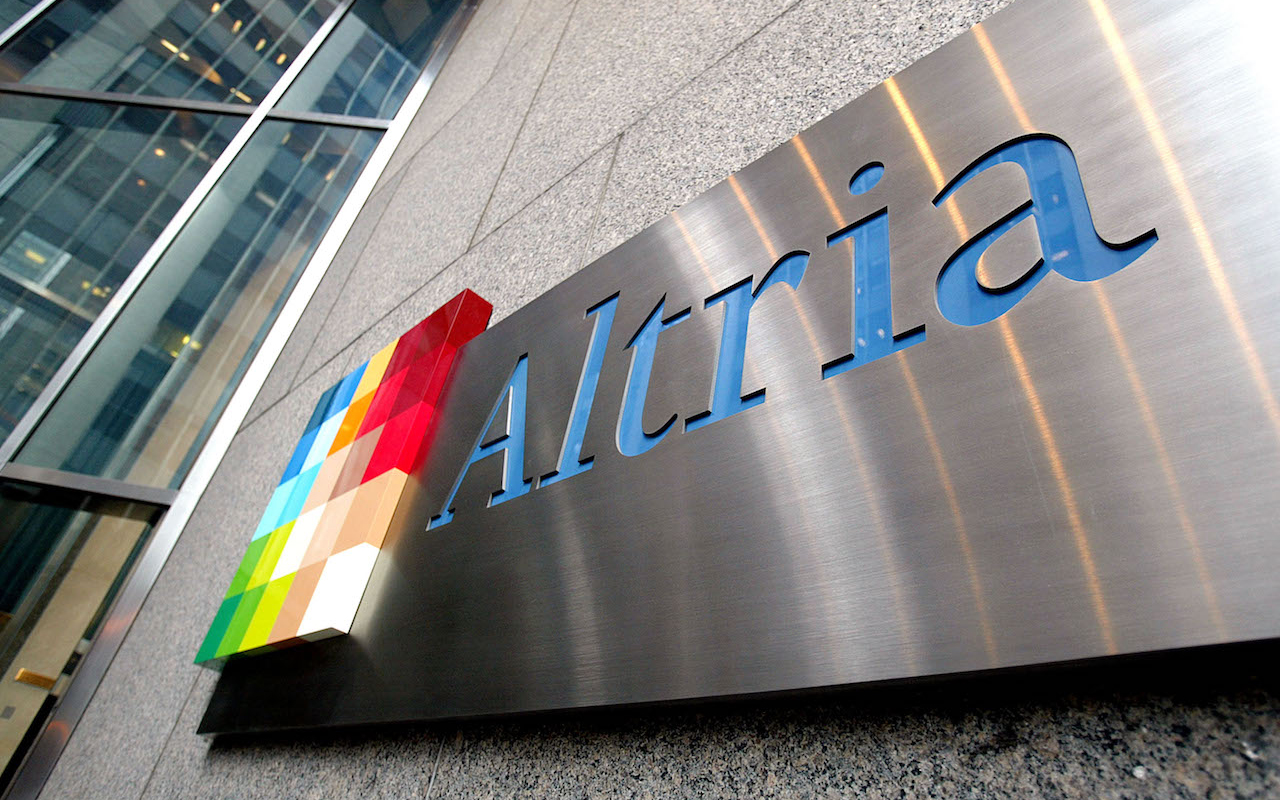
Altria
- Market value: $101.9 billion
- Dividend yield: 6.0%
“When building a portfolio of forever stocks, you are usually facing a decision of buying a stock for income or for growth potential,” says Joseph Conroy, financial planner with at Maryland-based Synergy Financial Group. But he also notes that cigarette company Altria (MO, $53.36) “appears it might be able to offer both.”
The outlook doesn’t exactly jibe with an increasingly effective smoking-cessation movement. But Altria is finding a way to survive. Revenues have mostly held steady since 2010. Income, while erratic, is trending upward, fueling the stock’s steadily rising dividend.
Nevertheless, the cigarette industry’s glory days of growth are behind it, and the future still looks fuzzy for e-cigarettes. What might Altria have in mind for its next era?
Conroy says, “There is one untapped market place that will be a huge growth factor for (Altria),” Conroy says. “The inevitable legalization of marijuana will create an amazing amount of market share opportunity for the company. The infrastructure is in place … Philip Morris (USA) can practically flip a switch and be in production of numerous cannabis products.”
“While waiting for that eventual day to come,” he says, “you are getting paid a healthy 5% dividend yield and an attractive P/E ratio of around 11.”
Investors won’t have to wait. A couple days after Conroy’s remarks, Altria announced it bought a 45% stake in Canadian cannabis company Cronos Group for $1.8 billion, with an option to up its stake to 55%.
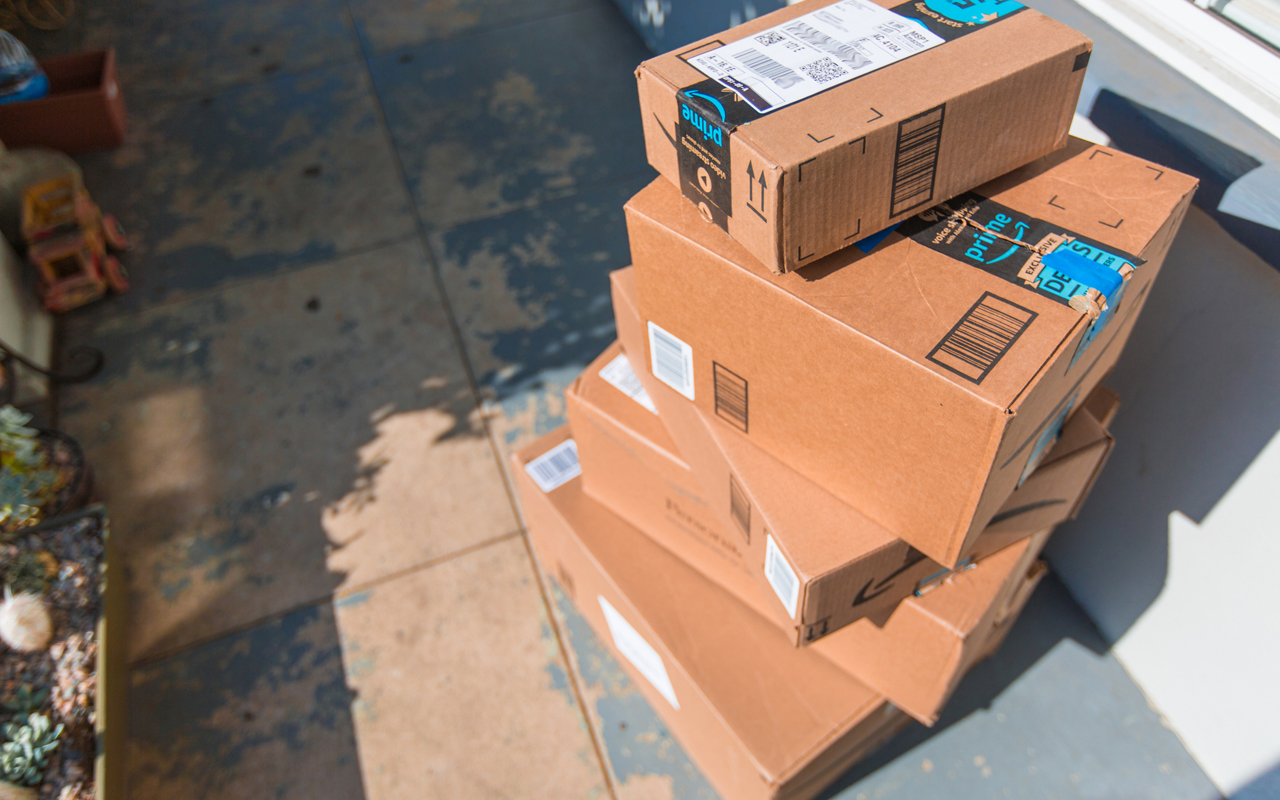
Amazon.com
- Market value: $814.0 billion
- Dividend yield: N/A
- Amazon.com (AMZN, $1,641.03) is a bird of a different feather to be sure, as it’s not valued based on any of the classic rules of stock-picking. But the e-commerce giant has a history of making up its own valuation rules so effectively that even the most traditional of investors can comfortably hitch onto this name.
Amazon’s staying power is anchored in its diversity, its reach and the mountain of consumer information it collects and leverages. From grocery stores to bookstores to its own brand of consumer goods to its own apparel brand names – and more – a huge swath of the world does at least some business with Amazon on a regular basis. Not everything it does is wildly (or at all) profitable. But once someone is brought into the ecosystem, Amazon presents all sorts of other alternative monetization paths.
It’s not a cheap business model. Amazon.com was barely profitable for years, and losses were never unusual or surprising. The company never has been more profitable than it is right now, and even so, newcomers will be paying more than 90 times the company’s trailing income and 60 times analysts’ estimates for next year’s profits.
But sales growth is unstoppable, and AMZN stock has been a similarly unstoppable investment. It’s not immune to the occasional short-term setback (see: now), but its longer-term trend has mostly reflected the past decade-plus of uninterrupted quarterly sales growth.

American States Water Company
- Market value: $2.5 billion
- Dividend yield: 1.7%
- American States Water Company (AWR, $66.58) isn’t exactly a high-flying growth stock that inspires splashy headlines. In fact, it’s the diametrical opposite of that. It’s a utility name that boasts slow growth. It’s not even cheap, at 40 times its trailing-12 month earnings. And its yield has been dialed down to a modest 1.7%.
But just try to go one day without using any water. The value of a reliable supply of potable water becomes crystal clear.
There are cheaper companies with better growth rates, even if that growth is uneven. No other industry, however, can say they operate what is effectively a legal monopoly with (literally) no alternative. Consumers can install solar panels as an alternative to relying on piping in power from a utility company. Many consumers are dropping landlines altogether and making their mobile phone their one and only phone. Short of drilling a well in their backyards, though, and hoping for the best, consumers will buy water from their one local provider.
American States Water’s top and bottom lines are well positioned for long-term growth, too. Rate increases ultimately have to be approved by a localized utility board, but requests from utility providers rarely are denied in the end, even if most are initially fought.
The rate increase trend is particularly reliable for water supplies. Circle of Blue, an industry information resource, reports eight consecutive years of nationwide water rate increases.

Amgen
- Market value: $125.3 billion
- Dividend yield: 3.0%
A biotech stock you can buy and forget? Really?
Yes, but only because Amgen (AMGN, $194.09) is anything but your typical biotech company. It has a great deal of built-in diversity that rounds out the wild revenue swings that single-product and other more focused biopharma stocks tend to dish out. No single drug makes up more than one-fourth of its revenue, and only two drugs generate more than a tenth of its sales. All told it makes and markets 15 different therapies, addressing multiple markets.
Those are just the drugs that are approved. Amgen has eight Phase III trials underway, seeking to expand its existing portfolio, and another five Phase II trials. Throw in the five biosimilar drugs in the works that don’t have to follow the full developmental path the FDA requires of most new drugs, and the company has plenty of revenue lined up for the foreseeable future.
Still, isn’t biotech an inherently risky investment? It certainly can be, but given Amgen’s sheer size and $30 billion worth of liquidity, Amgen is equipped to muscle out the competition and outright acquire some competitors it can’t keep contained.
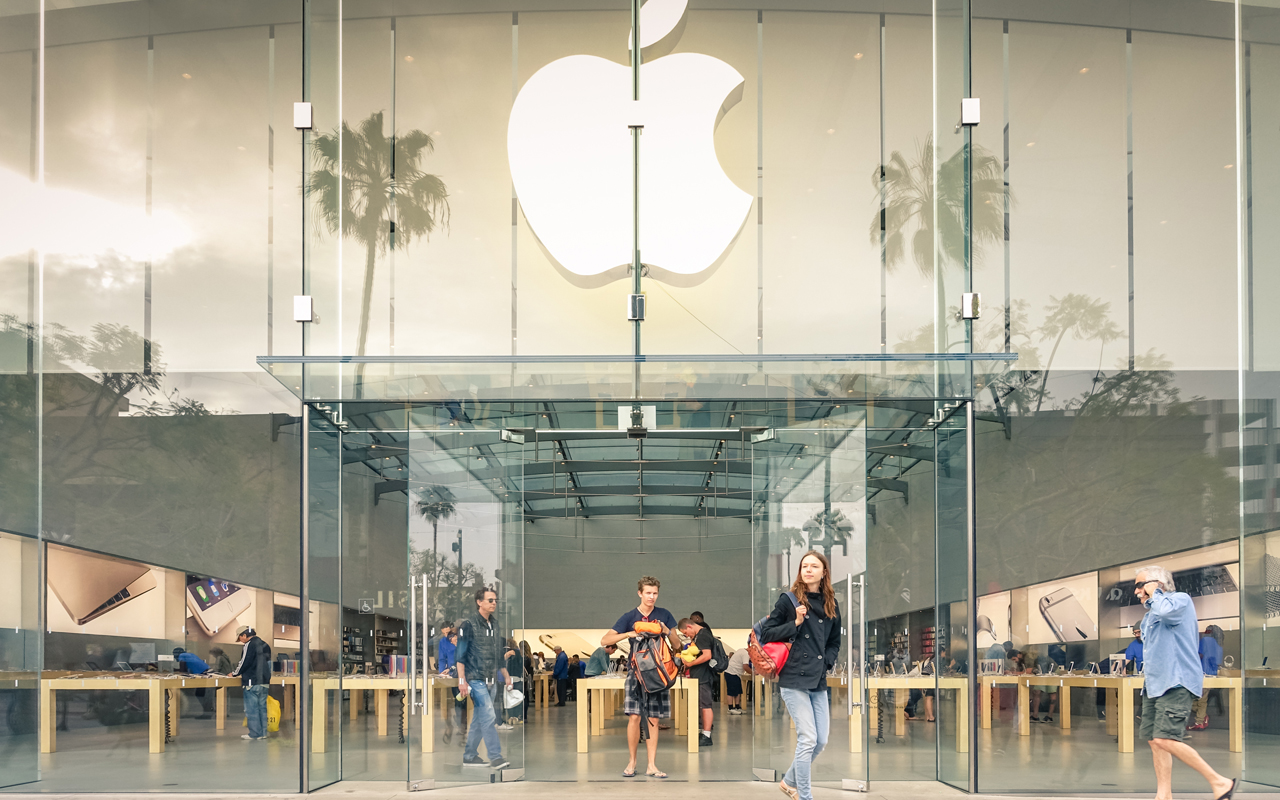
Apple
- Market value: $804.7 billion
- Dividend yield: 1.7%
Even for all its recent troubles, Apple (AAPL, $169.60) really is one of the market’s most proven names, and it would be even if it wasn’t a behemoth. Jason Escamilla, Chief Investment Officer with San Francisco based ImpactAdvisor, says, “With Apple, you a well-run growth company with extraordinary profit margins at a reasonable valuation.”
Those haven’t been the prevailing talking points of late. The company recently announced it would stop reporting unit sales of its flagship iPhone. Some analysts are interpreting the decision as a sign that Apple knows it’s finally starting to run out of new customers to sell the smartphone to. Moreover, Apple has gotten caught up in America’s trade war with China.
These headwinds are being offset by higher iPhone prices, however, and perhaps more important, by major revenue growth from its Services arm. Sales of apps and digital content shot 27% higher to a record $10 billion in the company’s quarter ended Sept. 29. That’s roughly 16% of Apple’s total sales, and the organization has yet to reach its full stride on that front.
Apple always seems to find something to sell, and it excels in most markets it chooses to address.
There’s a certain philosophical advantage in owning Apple over other investment opportunities too. Escamilla adds, “As a long-term investment, it is further de-risked when you consider the company's demonstrated preference for buying back shares over pursuing low-margin and higher-risk growth.” Apple has repurchased nearly $73 billion of its own stock over the past four quarters.
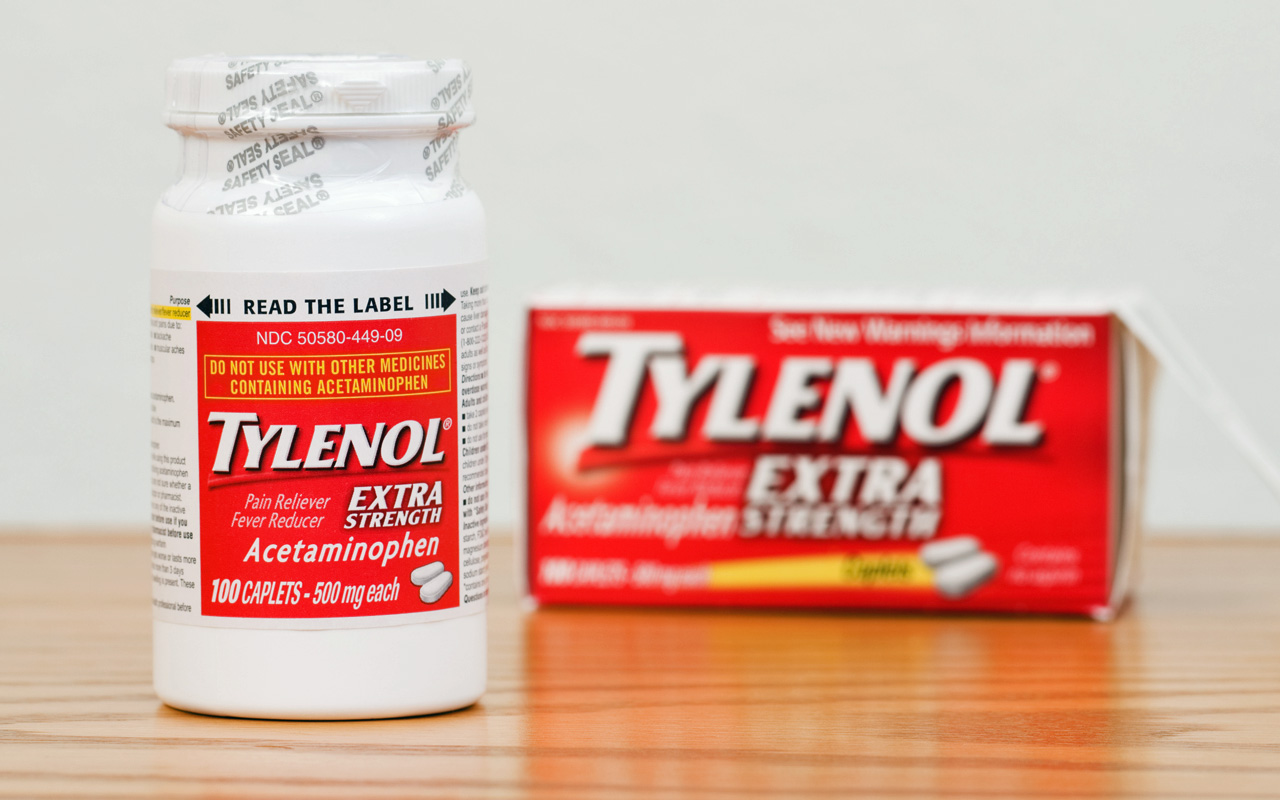
Johnson & Johnson
- Market value: $392.9 billion
- Dividend yield: 2.5%
Admittedly, Johnson & Johnson (JNJ, $145.26) is tough to like right now. Recent reporting suggests the company had known for years that its talcum powder contained the known carcinogen asbestos, underscoring what many have suspected for quite some time now. JNJ shares tumbled nearly 10% on the day Reuters made the allegation, but if the development turns into a full-blown legal liability, it could put even more pressure on J&J shares.
Yet, as difficult as it may be, one has to look at the bigger picture. This is the same company that’s been making baby shampoo for decades. It’s also the name behind Band-Aid brand bandages, Tylenol, Listerine and more – all consumer products that hold up against cyclical headwinds.
Investors should also recognize J&J is waist-deep into the pharmaceutical business. Last year it sold $36.3 billion worth of prescription drugs, led by arthritis and colitis treatment Remicade. It sold $6.3 billion worth of that prescription medicine, followed closely by $4 billion worth of Stelara. Even fewer investors recognize that Johnson & Johnson also operates a medical devices arm, which added $26.6 billion to last year’s top line. From laparoscopic surgery equipment to wound closure to glucose monitors, Johnson & Johnson has solutions.
It’s a rare mix of diversity that keeps JNJ in good position to keep the top line growing regardless of the regulatory or economic environment. Whatever litigation may arise from the asbestos allegation still won’t change the fact that the company is well-diversified.
EDITOR’S NOTE: This frame has been updated to include new information about Johnson & Johnson’s talc scandal.
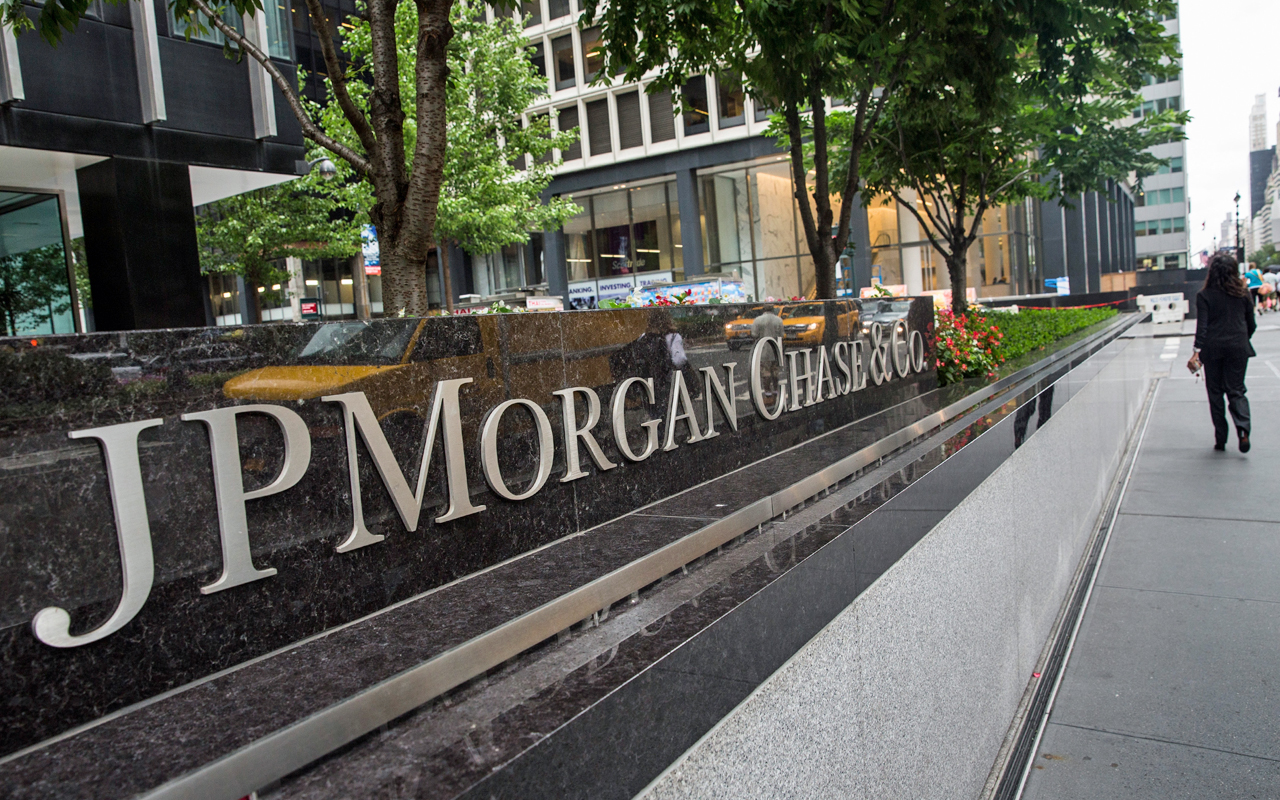
JPMorgan Chase
- Market value: $342.0 billion
- Dividend yield: 3.2%
“Being a value investor, I like the financial sector and especially JPMorgan Chase (JPM, $101.36),” says Glen Smith, managing partner of Glen D. Smith & Associates and advisor with Raymond James.
JPMorgan is the nation’s biggest bank when measured by total assets, sporting nearly $2.2 trillion worth as of the Federal Reserve’s latest look. It’s also much more than just a run-of-the-mill banking operation. JPMorgan offers wealth management, brokerage services, merchant services, underwriting and more. This breadth gives JPMorgan plenty of opportunity to grow.
And it largely has. While the bank finally struggled to fully shake off the echoes of 2008’s subprime meltdown and revenue continued to lose ground through 2016, JPM finally found its form. JPMorgan has broken records on the top and bottom lines in each of the past three quarters. Smith expects more of the same, too, saying, “We expect interest rates to climb, and as rates go up financials should profit more as the spread between what the banks generate on short-term notes and what they pay out to the customer continues to widen.”
JPMorgan’s appeal goes well beyond the foreseeable future. While it has become a head-turner of late, it’s also on firmer footing than many of its peers.
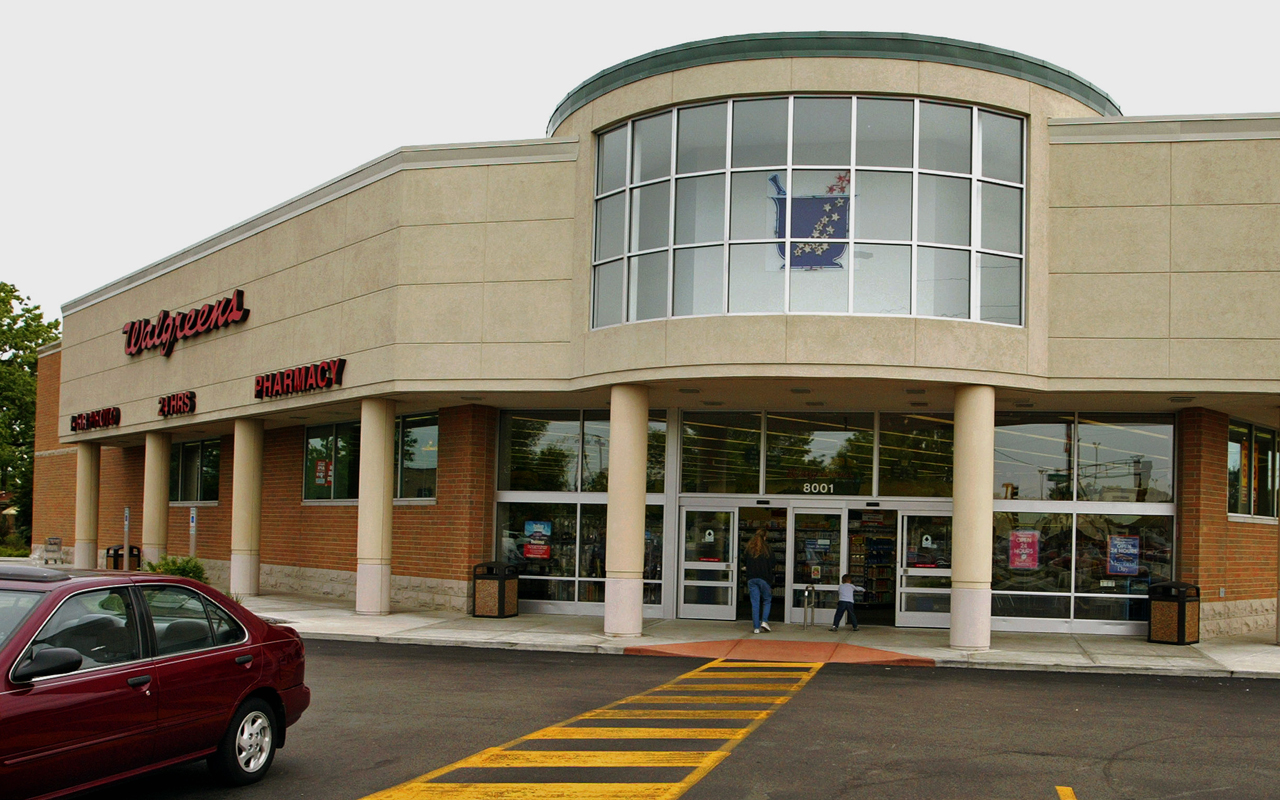
Realty Income
- Market value: $19.6 billion
- Dividend yield: 4.0%
Real estate is no less cyclical than stocks, though the ebb and flow of real estate values aren’t necessarily synchronized with the stock market. So investors aiming for a little more stability might want to blend real estate investment trusts (REITs) into their portfolios.
Chris Kuiper, equity analyst with CFRA Research, thinks Realty Income (O, $65.66) is a top all-weather way of adding real estate exposure to a portfolio. The company owns, develops and manages almost exclusively free-standing buildings that are leased to high-quality tenants such as convenience stores, dollar stores and drug stores – such as top customer Walgreens (WBA).
7-Eleven and FedEx (FDX) are a close second and third in terms of rent revenue, making up a tenant base that Kuiper says is “very insulated from the rise of e-commerce as well as recessions.”
“The company pays out a monthly dividend and has done so consecutively for the past 579 months at a 4.6% compound average annual dividend growth rate since it listed in 1994,” says Kuiper, who also likes Realty Income for dividend investors. “The total stock return has delivered a 15.9% compound annual return, far outpacing the S&P 500.”
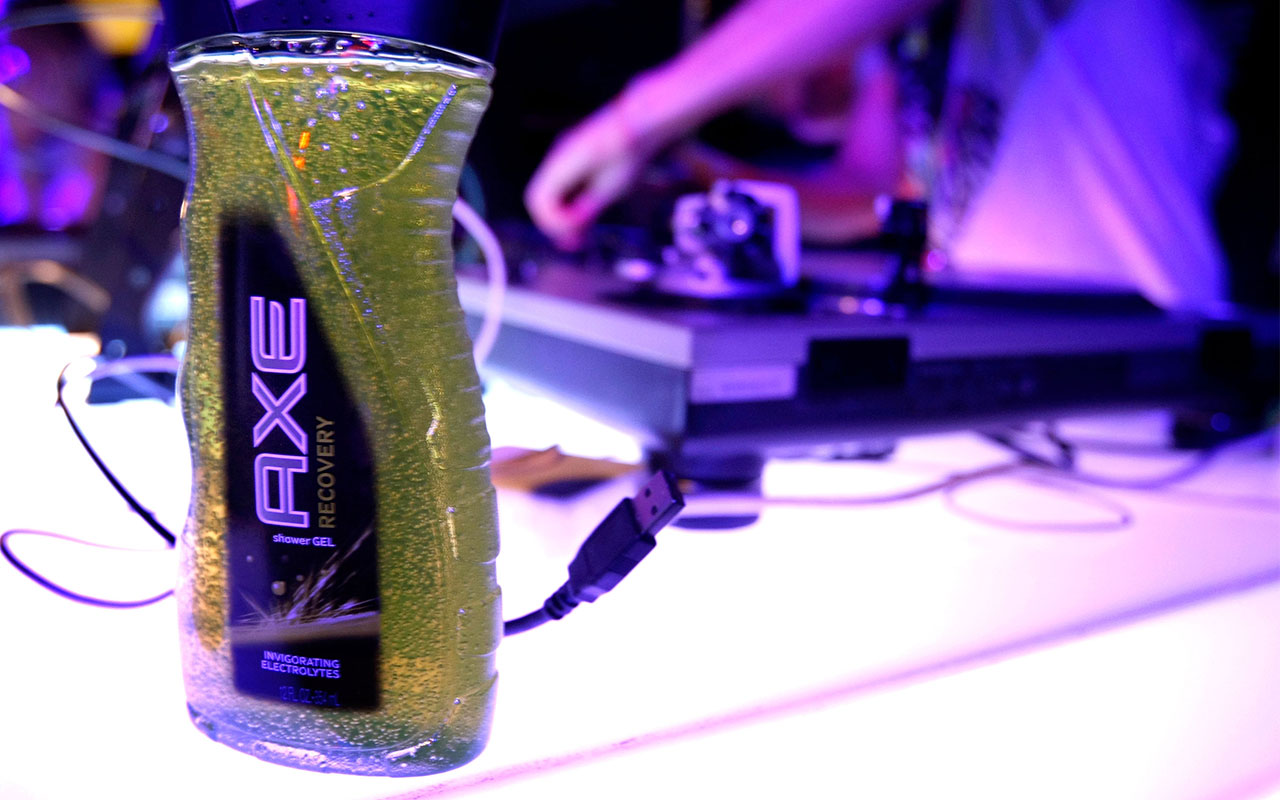
Unilever
- Market value: $149.0 billion
- Dividend yield: 3.3%
- Unilever (UN, $55.27) does double duty for North American investors. On the one hand, it offers exposure to the reliable consumer staples sector via always-marketable products like Lipton Tea, Hellman’s mayonnaise and Dove soap, just to name a few. On the other hand, it brings some much-needed international exposure to a portfolio. Unilever is a dual-headquartered company based in the U.K. and Netherlands. But more than that, it serves consumers all over the world.
It’s a bit of a misnomer that consumer goods companies are recession-proof. Recessions have become complicated matters, marked not just with a slowdown in consumer spending power but also by inflation that can crimp margins of food and hygiene goods. No company is truly recession-proof.
To the extent a company can be recession-resistant, however, Unilever is. It generated more sales and earned more profit in 2008 than it did in 2007, and though things slowed a bit it 2009, the company was easily back on track come 2010.
How? Unilever had and has a firm grasp of what was working, and what would work, in terms of product mix and product development. In 2009, for instance, the company tweaked its marketing message for its Bertolli frozen dinners, appealing to consumers who’d stopped eating out in the wake of a rough recession. Its U.S. counterpart Procter & Gamble (PG), conversely, began to struggle in 2008 and never really seemed to be able to recover.
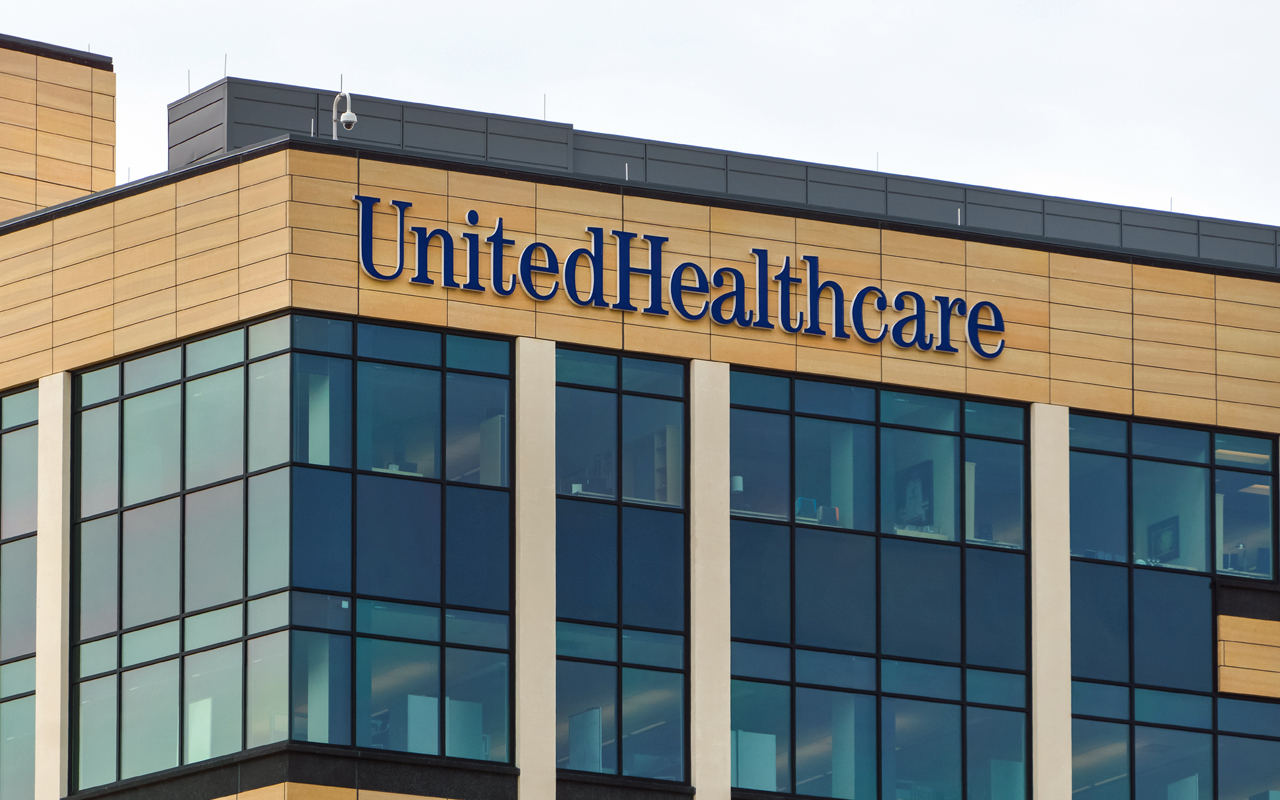
UnitedHealth Group
- Market value: $260.5 billion
- Dividend yield: 1.4%
The future of the nation’s healthcare industry couldn’t be less certain. The discussion of a single-payer solution is heating up. There’s no argument that healthcare has become largely unaffordable, even if the reason isn’t clear. Pharmaceutical companies, hospitals, insurers and caregivers all blame someone else.
This kind of uncertainty, at first blush, makes a middleman like UnitedHealth Group (UNH, $266.53) difficult to own. Barring the outright – and unlikely – end to the for-profit healthcare and insurance industries, however, this very uncertainty is what makes UNH a go-to, soup-to-nuts solutions provider.
Case in point: Late last year, as a means of contending with the increasingly expensive cost of reimbursing doctors, UnitedHealth simply acquired a large doctors group, adding it to a collection of smaller outfits its owns – a list that includes a pharmacy benefits business. It also recently acquired Peoples Health, a Medicare Advantage plan, extending its breadth and depth. Each of these deals makes the company more of a one-stop solution that seems to be the shape of things to come, jibing with CEO David Wichmann’s comment from earlier in the year, “We’re looking to add market presence and capability across our business.”
Other insurers could do the same, but UNH has size, and a head start.

Waste Management
- Market value: $39.2 billion
- Dividend yield: 2.0%
Nothing is certain but death and taxes. But that adage omits one other key certainty: As long as mankind populates the planet, it will create and dispose of trash.
That puts Waste Management (WM, $91.27) in a recession-proof business.
Waste Management hauls garbage away for more than 21 million North American customers, keeping our streets, homes and business free of the refuse that would otherwise pile up surprisingly quickly. It’s the nation’s biggest trash company, and it booked $2.3 billion in net income over the past four reported quarters.
It’s also one of the environmentally friendliest companies. Its natural gas trucks also make up the country’s largest fleet of such vehicles, making the most of the emissions all dump sites put out. As the price of, and need for, energy continues to grow, Waste Management (literally) has an ever-growing opportunity to turn trash into cash.
That said, Waste Management is able to really thrive when the economy is strong like it is now. CEO Jim Fish recently explained after a solid third-quarter report, “(Dumpster rentals) are a really good proxy for how small business is doing, and small business seems to be doing well based on that … the industrial side of the business is more a proxy for manufacturing, and that’s doing well too.”
Profit and prosper with the best of Kiplinger's advice on investing, taxes, retirement, personal finance and much more. Delivered daily. Enter your email in the box and click Sign Me Up.

-
 The New Reality for Entertainment
The New Reality for EntertainmentThe Kiplinger Letter The entertainment industry is shifting as movie and TV companies face fierce competition, fight for attention and cope with artificial intelligence.
-
 Stocks Sink With Alphabet, Bitcoin: Stock Market Today
Stocks Sink With Alphabet, Bitcoin: Stock Market TodayA dismal round of jobs data did little to lift sentiment on Thursday.
-
 Betting on Super Bowl 2026? New IRS Tax Changes Could Cost You
Betting on Super Bowl 2026? New IRS Tax Changes Could Cost YouTaxable Income When Super Bowl LX hype fades, some fans may be surprised to learn that sports betting tax rules have shifted.
-
 Dow Dives 870 Points on Overseas Affairs: Stock Market Today
Dow Dives 870 Points on Overseas Affairs: Stock Market TodayFiscal policy in the Far East and foreign policy in the near west send markets all over the world into a selling frenzy.
-
 If You'd Put $1,000 Into 3M Stock 20 Years Ago, Here's What You'd Have Today
If You'd Put $1,000 Into 3M Stock 20 Years Ago, Here's What You'd Have TodayMMM stock has been a pit of despair for truly long-term shareholders.
-
 What Fed Rate Cuts Mean For Fixed-Income Investors
What Fed Rate Cuts Mean For Fixed-Income InvestorsThe Fed's rate-cutting campaign has the fixed-income market set for an encore of Q4 2024.
-
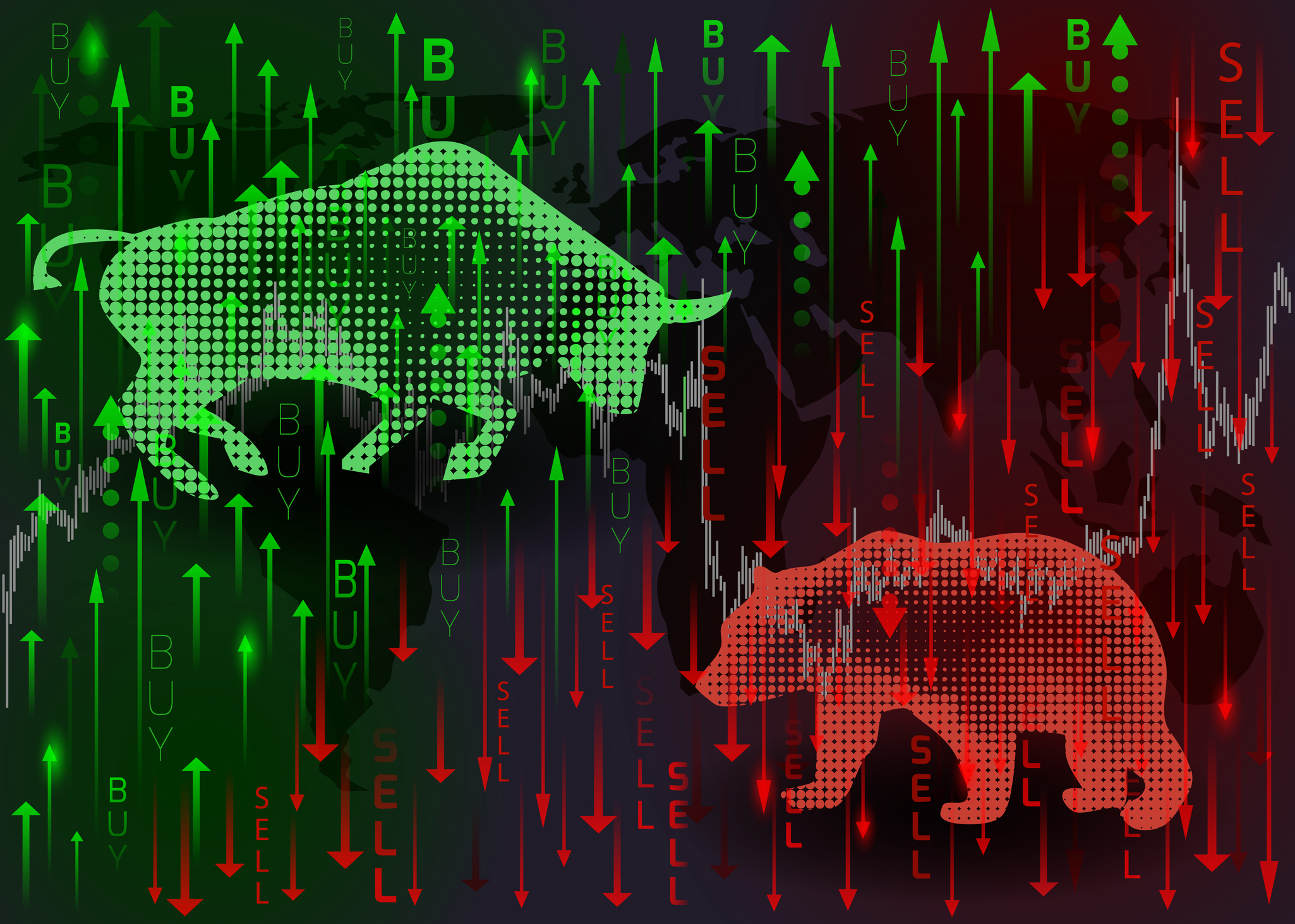 3M, GM, Blue Chips Lead to the Upside: Stock Market Today
3M, GM, Blue Chips Lead to the Upside: Stock Market TodayThe S&P 500 followed the Dow Jones Industrial Average into green territory, but the Nasdaq lagged the other indexes because of its tech exposure.
-
 The Most Tax-Friendly States for Investing in 2025 (Hint: There Are Two)
The Most Tax-Friendly States for Investing in 2025 (Hint: There Are Two)State Taxes Living in one of these places could lower your 2025 investment taxes — especially if you invest in real estate.
-
 The Final Countdown for Retirees with Investment Income
The Final Countdown for Retirees with Investment IncomeRetirement Tax Don’t assume Social Security withholding is enough. Some retirement income may require a quarterly estimated tax payment by the September 15 deadline.
-
 What Tariffs Mean for Your Sector Exposure
What Tariffs Mean for Your Sector ExposureNew, higher and changing tariffs will ripple through the economy and into share prices for many quarters to come.
-
 Stock Market Today: Stocks Step Back From New Highs
Stock Market Today: Stocks Step Back From New HighsInvestors, traders and speculators continue the low-volume summer grind against now-familiar uncertainties.
